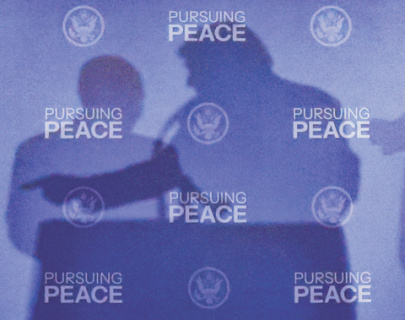
The recent high-stakes summit in Alaska between Vladimir Putin and Donald Trump has left world leaders with more questions than answers, setting the stage for a series of tense clarifications in the coming days. President Trump is now slated to meet with key NATO allies and Ukrainian President Volodymyr Zelenskyy, who are seeking to understand the precise nature of any agreements reached. The ambiguity of the summit’s outcome is starkly contrasted by President Zelenskyy’s definitive statement on Sunday, August 17th, insisting that any discussion of territorial changes must occur in a trilateral format involving the U.S., Ukraine, and Russia, and ruling out any legal surrender of Ukrainian land.
A central point of contention emerging from the summit is the apparent lack of progress towards an immediate ceasefire, meaning the conflict is set to continue. Instead, President Trump, in a post on his Truth Social network, revealed a ‘unanimous decision’ with Putin to work towards a comprehensive ‘peace agreement’ rather than a ‘truce agreement, which often does not stand the test of time.’ This approach mirrors a long-held Russian position that Kyiv has consistently rejected, and suggests Trump disregarded advice from NATO allies to prioritize an immediate cessation of hostilities. This diplomatic strategy, rooted in Trump’s preference for building international relations on personal rapport, has drawn significant criticism within the United States.
In the absence of concrete details from the White House, media analysis and anonymous leaks have filled the information vacuum. Prominent commentators, such as CNN’s Fareed Zakaria and former National Security Advisor John Bolton, have characterized the summit as a strategic victory for the Kremlin, which advanced its agenda without Trump making explicit concessions. Adding to the intrigue, an unconfirmed report by Axios suggested a novel proposal was floated to involve China as a security guarantor for Ukraine—a claim that has not been verified by Washington, Moscow, or Beijing.
President Zelenskyy, speaking after a conversation with European Commission President Ursula von der Leyen, has made Ukraine’s position unequivocally clear. Ahead of his critical meeting with President Trump—which will also involve leaders from the UK, France, Germany, Italy, and the NATO Secretary-General—Zelenskyy reiterated that Ukraine’s constitution ‘makes it impossible to surrender territory or trade land.’ He stressed his lack of knowledge about the specifics of the Trump-Putin discussion but affirmed his country’s unwavering commitment to eventual EU and NATO membership.
The uncertainty is further compounded by conflicting messages from within the Trump administration itself. U.S. Special Representative Steve Witkoff told CNN that the topic of territorial concessions by Ukraine would indeed be a subject of discussion during the upcoming meetings with allies. However, in a separate interview with NBC News, Secretary of State Marco Rubio appeared to directly contradict this, stating that the U.S. will not pressure Ukraine to cede territory. ‘If the Ukrainians are not ready to give up anything, no one will force them to give it up,’ Rubio asserted, leaving allies and observers to ponder where Washington’s true policy lies.
